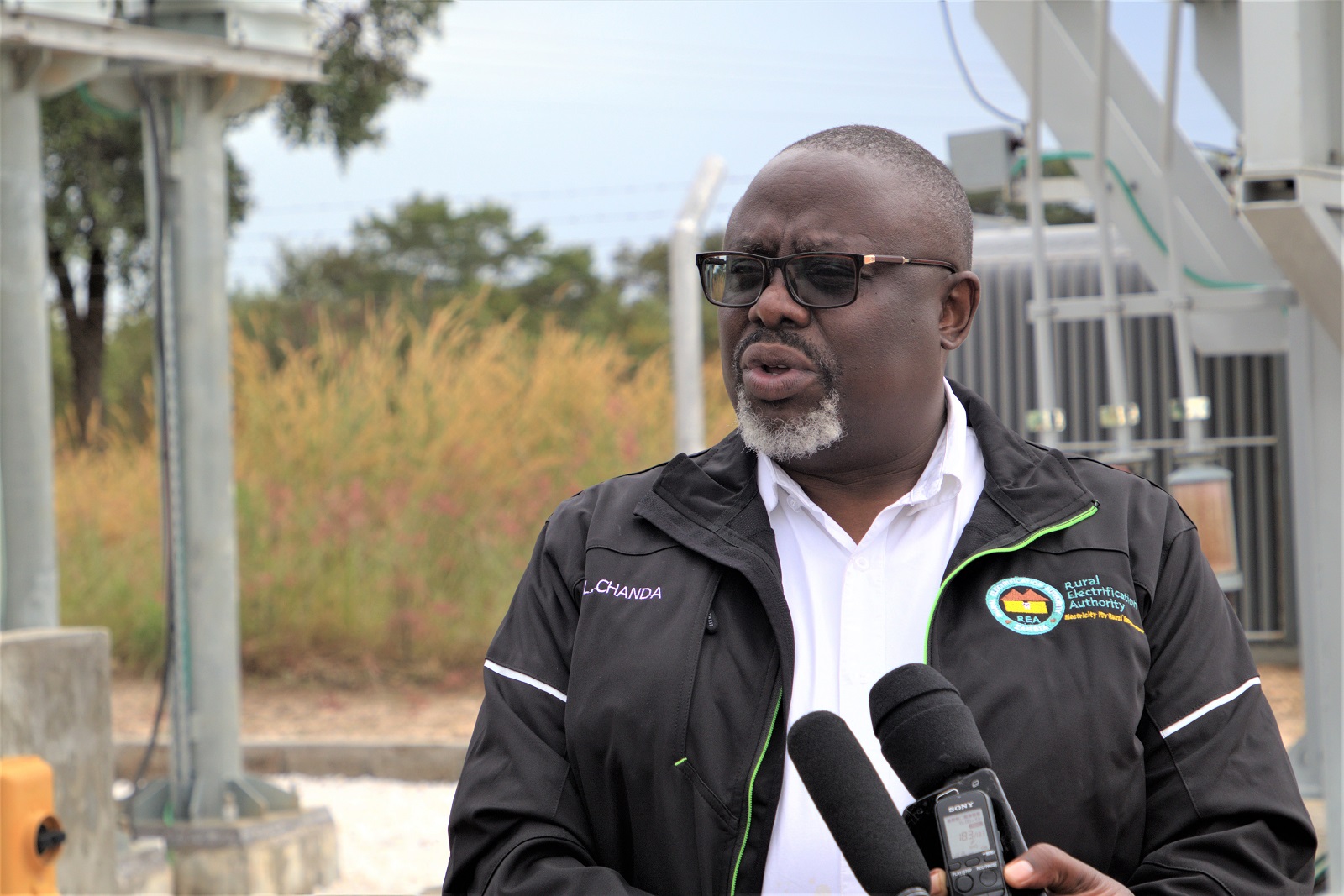Electricity is essential to any community that wants to take part in the modern world. However, while electrification is an essential utility, it is also a business, which means that remote locations can continue to go without service if they are not seen as profitable. This is why the Rural Electrification Authority was established by an Act of Parliament in 2003, to accelerate the electrification of rural areas of Zambia.
“Initially the task of electrifying the nation was entrusted to the national electricity utility, but the government realized the utility had opposing interests,” explains Linus Chanda CEO of the Rural Electrification Authority (REA). “On one hand, the electricity utility needed to make a profit, while on the other hand, they were executing the government’s social responsibility to electrify rural areas. But rural electrification is not essentially profitable. So, that is how REA came into being. Government, through an Act of Parliament, created the REA to take up the responsibility of electrifying rural areas.”
The government created this organisation to carry out the mandate of providing electricity to rural areas because electricity is an enabler of development.
“By having an organisation that is dedicated to providing electricity to out-of-the-way rural areas, you can also fund areas of development,” Chanda tells us. “This has been amplified now, given that the government has decentralised the management of constituency development. Instead of planning and executing constituency developmental projects centrally, the government has transferred the planning and execution of such projects to the constituencies, who will determine their own developmental needs to build infrastructure. This has resulted in the growing demand for electricity in these outlying areas.”
Where Public and Private Meet
“The biggest challenge that REA faces is obviously financing! We are financed by public funds and government resources are finite, to go around competing needs,” Chanda says. “There are not enough funds to finance rural electrification needs. Government can only allocate us this much, so we try to ensure that we utilise what little resources we have effectively.”
There is no silver bullet solution for electrifying rural areas, instead, REA deploys a combination of solutions.
“We innovatively overcome this challenge on several fronts,” says Chanda. “We are constantly finding cost-effective ways of electrifying these rural areas. As an example, we sometimes would prefer to create off-grid systems using solar or mini-hydropower generation as opposed to extending the utility grid. This is because is a cheaper and more effective solution.”
As well as implementing projects fully funded by Government, REA is also looking for opportunities to strengthen its collaboration with the private sector to bring electrification to more out-of-the-way localities.
“We are exploring avenues of creating synergies with the private sector, who are complementing the government’s effort in taking developmental projects in rural areas,” Chanda tells us.
“For rural electrification projects, the private sector is incentivised to enter a particular area and invest in electricity production and distribution because someone there will pick up the electricity and use it. We leverage the private sector and private financing by taking on some of the risks the private sector may be faced with.”
 The other challenge that REA faces is manpower. Whereas projects need financing, they also need people who can competently execute these projects. For REA, this means a combination of recruiting and retaining the best talent that we can find, and also working with the private sector and Non-Governmental Organisations who can collaborate to achieve REA’s goals.
The other challenge that REA faces is manpower. Whereas projects need financing, they also need people who can competently execute these projects. For REA, this means a combination of recruiting and retaining the best talent that we can find, and also working with the private sector and Non-Governmental Organisations who can collaborate to achieve REA’s goals.
“Sometimes we find ourselves having to complement some of the latest developments on the market. When we do that, it is an opportunity to work with the partners to bring on board technologies that can build capacity within ourselves in skills transfers and training,” Chanda says. “We have sent technical staff out to where the technology is coming from to sharpen their skills.”
Building Synergies With Communities
A successful development project requires community buy-in and participation right from the start. REA ensures engagement with communities right from the point when the project is being packaged and costed. After construction, it’s not good for us to disappear once the project is complete.
“We are leveraging the communities themselves in identifying those individuals in the community with the right technical acumen,” Chanda says. “We harness such individuals and build their knowledge and understanding of electricity and the equipment they are going to operate. Then we send them back to operate that system with support from our offices.”
This is the ultimate microcosm of what REA work is about – building connections. It not only includes connections with the power grid but also connections between communities and the public and private sectors.
“What we are trying to do now is leverage our different partnerships and build new ones,” Chanda says.
“We are now working to increase our collaboration with United Nations (UN) agencies the European Union (EU), as well as other multinationals to package projects that can accelerate electrification in our target areas. We are also looking at the productive utilisation of electricity. We are ensuring that electricity is not just seen as that which provides lighting but that which provides an economic return to those who use it productively. We are working with the private sector to find instances where we can bring value-adding activities to the networks they are implementing.”







